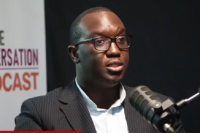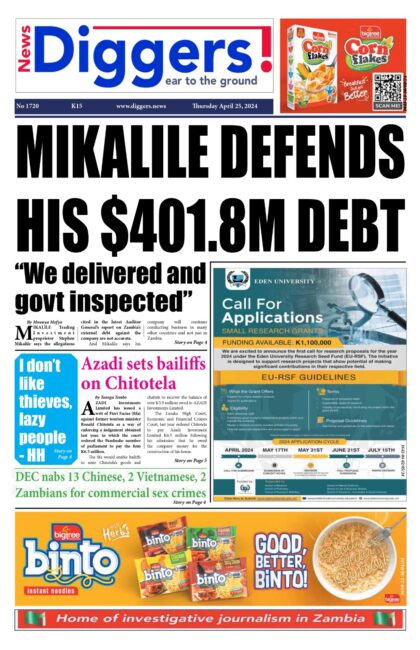Professor Oliver Saasa has urged government to be cautious and transparent when handling the proposed privatisation of Indeni Petroleum Refinery and TAZAMA.
An investigation has revealed that government will soon privatise Indeni and TAZAMA, a move which experts say would end the importation of crude oil.
Energy minister David Mabumba told Diggers! that government was wasting money by involving itself in the importation of petroleum products.
He added that the private sector would then takeover the procurement function, a modality which has not yet been spelled out.
Finance minister Felix Mutati was hesitant to confirm the planned sale of Indeni and TAZAMA, but said the Ministry of Energy would announce the new policy soon.
Commenting on the revelation, Prof Saasa said as a proponent of privatisation, he believed that the economy could not be driven by government and that it was not the business of government to run businesses, but cautioned that the planned sale of Indeni could be “catastrophic if not well handled”.
“So, if the principle is that of leading to efficiencies, then that will lead to capitalisation. If the result is lowering the cost and to benefit the consumers at the tail-end of the retail chain, then it is welcome,” Prof Saasa said.
He expressed worry that the privatisation process could be done hastily because “certain individuals with political connections” were interested.
Prof Saasa pointed out the need to carry out a detailed assessment of the institution’s value before it was sold.
“It is even worse, in my view, to allow privatisation which is meant to target certain individuals that want to benefit from it, especially if those people are politically connected,” he said.
“While you want get excited about the privatisation itself, then you discover that things which are happening are underhand…”
The professor of economics said the country had many lessons from the past which could guide the planned Indeni privatisation.
He recalled that the privatisation of the mines was shrouded in mischief.
“… if there is a person who can’t learn from their previous mistakes, then they will never learn from anything because we rarely learn from success,” Prof Saasa observed.
“It reminds me of what happened in the past and I would comment on that publicly – the introduction of the bureau de change by [late finance minister] Ronald Penza. He introduces it and the first person who opens a bureau de change was himself. The question is was there self-interest?”
He added that his confidence in the privatisation of Indeni was being dented by stories he was hearing suggesting that foreign companies were receiving government protection in the oil industry.
“I’m hearing stories that do not give me that level of confidence. … stories about protecting certain individual companies which are not even Zambian,” said Prof Saasa.
“You use Zambian companies outsourcing from them. You start wondering, are there some political benefits to particular individuals in this entire process? So until it is transparent, until the whole process is very clear, I would not support it. In other words I would actually go for support of a process of privatisation that is transparent, that is accountable.”












